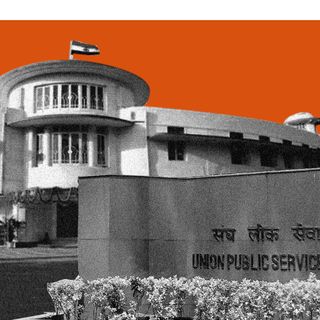Three Army soldiers have been booked by Jammu and Kashmir police in connection to an abduction attempt on a 9-year-old girl from north Kashmir’s Bandipora district. The charges against the soldiers involve wrongful restraint, kidnapping, and attempting to commit offense under Section 511. While the family of the girl alleges molestation, such charges don’t appear in the FIR.
In responding to the incident, the state’s former chief minister Mehbooba Mufti tweeted, “Her family is now being pressurized to withdraw the FIR. It’s a complete travesty of justice & an impartial probe must be set up immediately so that they are given the harshest punishment.”
The state of Jammu and Kashmir, with the heavy military presence imposed on its people, has witnessed several such incidents in the past. In December 2020, for example, an Army soldier was arrested for allegedly molesting a woman from Uri. The state has, in the past, witnessed all too many incidents of sexual violence perpetrated by the Army on its citizens; one infamous incident occurred in February 1991, when four soldiers of the Rajputana Rifles allegedly raped 23 women in Kunan and Poshpora villages. According to a Human Rights Commission report released in 2012, the soldiers had taken all the men from the villages to a separate location and then committed mass gang rape against the women and girls.
To this day, the Army maintains the Kunan-Poshpora trauma was a hoax by militants, and 29 years later, the judiciary has failed to provide a decisive judgment delivering justice to the victims. “The case has been lying in three courts and although the State Human Rights Commission found all the allegations to be true, there has been no judgment yet,” Khurram Parvez, program coordinator of the Jammu Kashmir Coalition of Civil Society (JKCCS), told The Logical Indian.
Another incident of the Army inflicting sexual violence on Kashmiris occurred in 2009, in the Shopian district. Two women, 17 and 22 at the time, were found dead, in tattered clothes; the locals had alleged they were raped and killed by government forces. Almost a decade later, there is still no resolution, or any justice, in the matter. In speaking to the National Herald, Shakeel Ahmad Ahanger, brother of the 17-year-old victim and husband to the 22-year-old victim, said, “I have no faith in Indian institutions. Be it judiciary or any investigating agency they are all biased and subservient to government. They do what the government of the day wants them do.”
Related on The Swaddle:
India’s Internet Shutdown in J&K Is the Longest Imposed in Any Democracy
While it is impossible to collate accurate statistical data on the pervasiveness of military brutality in Kashmir, individual fact-finding missions have provided a qualitative understanding of the impunity with which the Army is allowed in the region. A 1993 Human Rights Watch report titled “Rape in Kashmir” states, “Rape most often occurs during crackdowns, cordon-and-search operations during which men are held for identification in parks or schoolyards while security forces search their homes. In these situations, the security forces frequently engage in collective punishment against the civilian population, most frequently by beating or otherwise assaulting residents, and burning their homes.” The report adds, “Rape is used as a means of targeting women whom the security forces accuse of being militant sympathizers; in raping them, the security forces are attempting to punish and humiliate the entire community.”
Legally, the Army is protected in conflict areas such as Kashmir by the Armed Forces Special Powers Act (AFSPA), which shields the Army from legal recourse in cases involving human rights violations. In such cases, any prosecution against Army personnel needs to be sanctioned by the central government; Prime Minister Narendra Modi has repeatedly iterated his support for AFSPA, without which he has said soldiers might as well be sent to the gallows. In cases related to sexual violence, however, the stipulations articulated under AFSPA are not supposed to protect Army personnel from being charged. Neither is the prosecution required to obtain any sanctions from the government, the Justice Verma Committee — entrusted with coming up with stricter punishments and faster legal processes to deal with sexual violence against women — had suggested. According to a 2017 report from The Wire, however, “this suggestion is yet to be adopted.”




